Overall-Height Issues and Pump-Gear Problems
Some GM vehicles with 4L60-E transmissions and 300-millimeter converters are experiencing higher-than-normal pump-gear failures. Affected vehicles are 2002-2003 Bravada, Envoy and Trailblazer (Dacco B-85 VJCX) equipped with the 4.2L engine. An easy way to identify this converter is that it is the only GM 300mm unit whose impeller overlaps the front cover rather than vice versa.
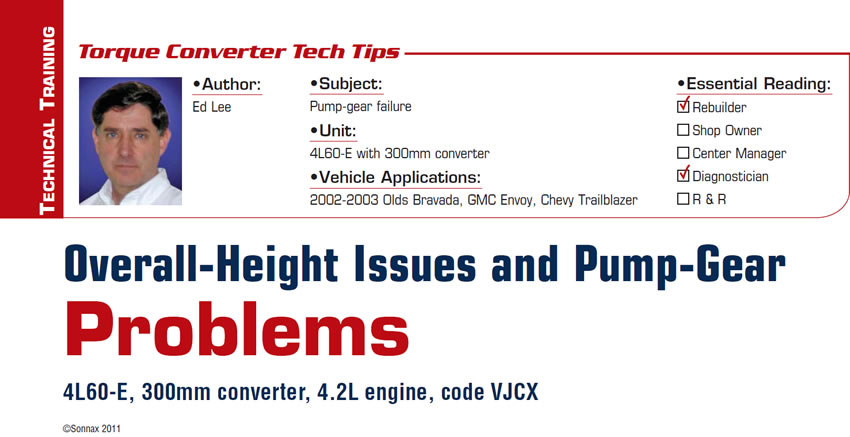
A Balancing Act
There is very little information written about this transmission concerning the valve body and its associated hydraulic operations. For this reason ATSG has produced a Technician Guide that provides extensive information including valve-body mapping and a complete set of hydraulics. In the process of developing this guide, we discovered a unique way in which this unit controls clutch application. The high-clutch amplifier valve in the upper valve body (Figure 2) serves as a perfect example.
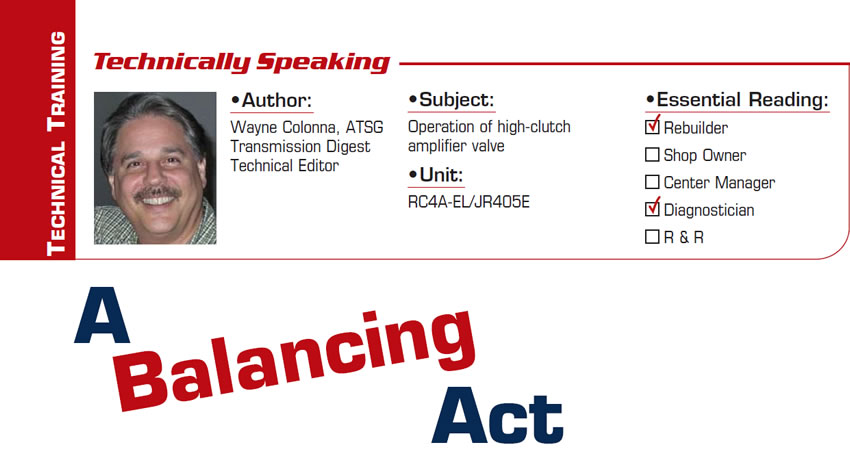
Manual Transmission Fails Because of Hydraulic Error
Manual Transmission Fails Because of Hydraulic Error
R&R Tech
Subject: Shifter sticks in fifth gear
Unit: NV4500
Vehicle Application: 2002 GMC 2500
Essential Reading: Rebuilder, Diagnostician, R & R
Author: Steve Logeman
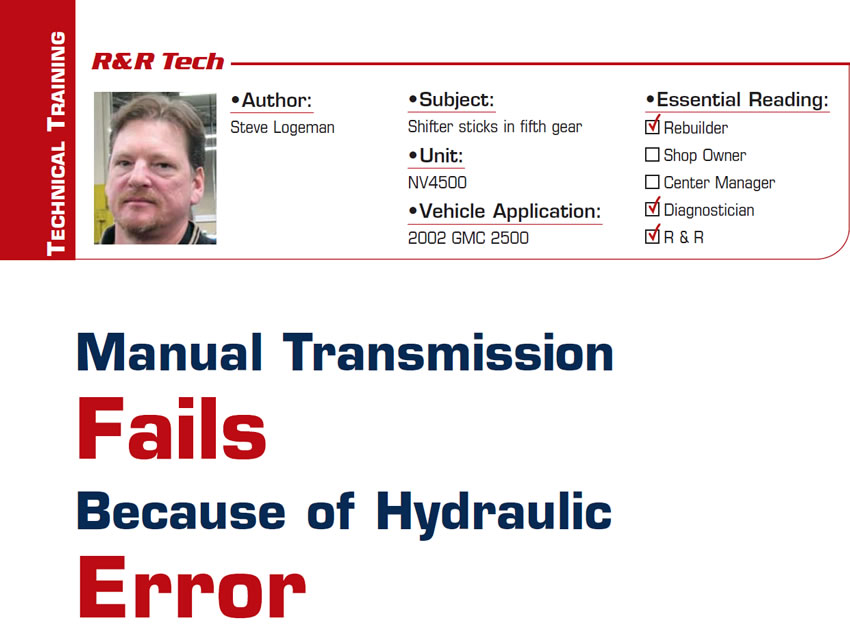
Driveway Fixes not Always Easy
In this day and age of technology, most of the problems motorists encounter can be found on a “fix database” somewhere. The more everyone relies on these fixes, however, the less we technicians are needed to troubleshoot problems. Technicians are not the only ones looking for fixes on the Internet. “Do-it-yourselfers,” as well as many car owners who are caught in the current economic crunch, are finding their own solutions on the Internet with simple Google searches.
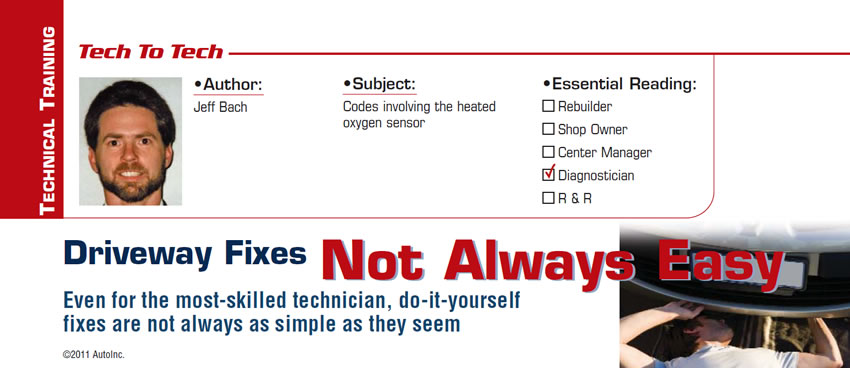
Honda/Acura Third-Clutch Mystery
As a rule, when I write about something it’s factual and definitive material with some kind of solution to the problem. This article contains none of those things; however, it does contain theories.
This is in reference to the common failure of the third clutch in Honda/Acura five-speed transaxles. When one of these vehicles comes into the shop with third gear slipping badly you can count on the fact the third-clutch plates will be totally destroyed (Figure 1), along with its immediate components such as the third-clutch return-spring retainer and the splined washer that sits on top of it (Figure 2) and the return-spring retainer shown in Figure 3.
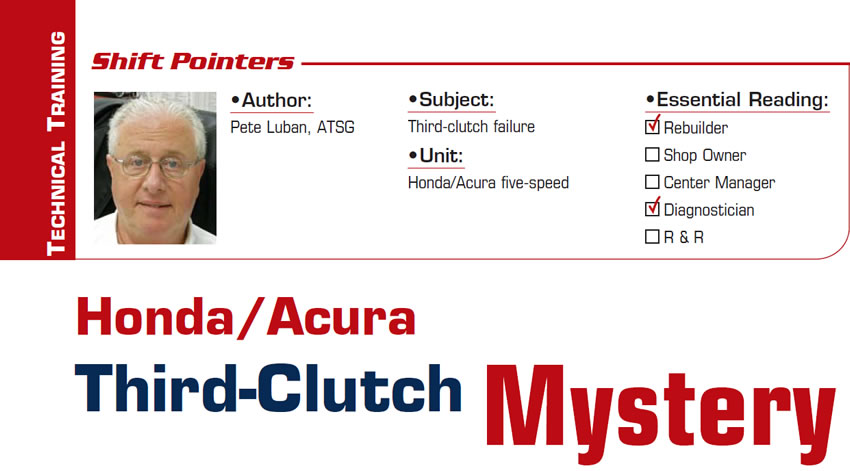
6L80/6L90: No Movement After Repair
This is the tale of two transmission technicians: one at the beginning of his career and another who grew up in the business. What they have in common is working on the 6L80/6L90 for the first time. Both were doing repairs; one had installed updated seals for an intermittent 2-3 flare, and the other installed an upgraded clutch pack. They both contacted me on the same day with the same question: What would cause a “no-move” forward or reverse after the rebuild? Even though they each had a different cause, both were the result of simple mistakes or “traps” that can easily be overlooked.
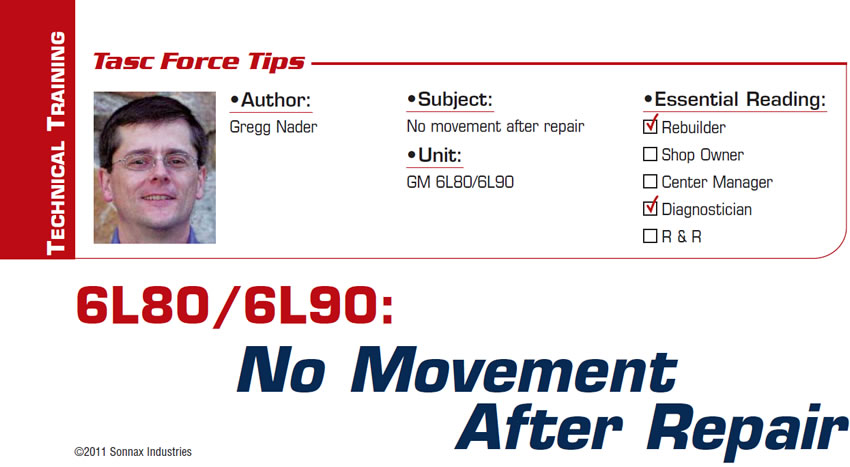
Being Profitable and Controlling Costs
Pricing your work incorrectly is one of the most-common strategic errors. Does your labor rate reflect your cost of doing business with a percentage of profit for the amount of billable hours, or is it a number that is comparable to or cheaper than your local competition? Do you know what the fiscal burden is for each employee? Do you know what it costs to turn the key in the door every day, so that your pricing reflects the absorption of those costs plus a correct profit percentage? These are all vital data without which you have no way to price your work correctly.
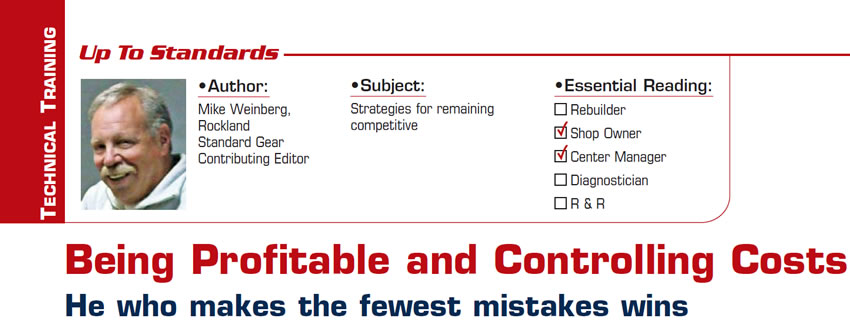
April 2011 Issue
In This Issue
THM 4L60-E: 1993-2009 spacer-plate identification
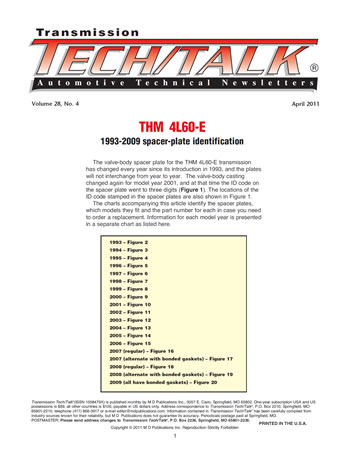
Two Ears, One Mouth
Humans and most animals are endowed with two ears and only one mouth. Although some people can talk out of both sides of their mouths at the same time, the proper ratio for salespeople, negotiators and most others in business or the professions is 2-1 – listening twice as much as we speak. It only makes sense; if we listen more and talk less we can take in valuable information that we can use to get the other party to do what we need. If we’re too busy trying to get our points across instead of listening to theirs we will miss the clues that could give us the outcome we want.

